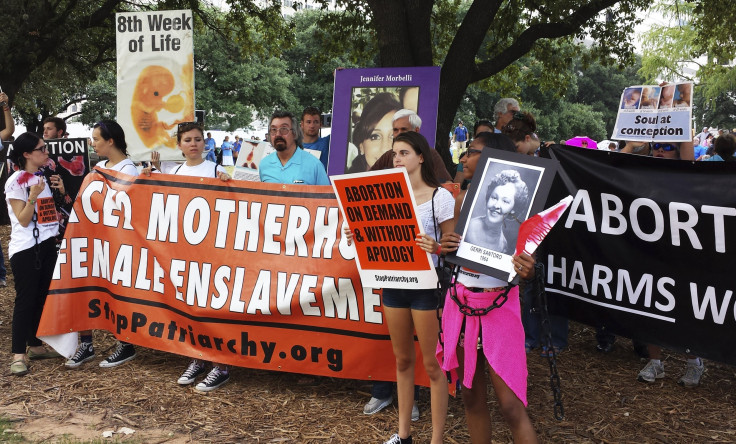Fetus Attorney: 'Daily Show' On Why Alabama Thinks The Unborn Need Lawyers

Many people in Alabama who need a good attorney cannot afford one, American Civil Liberties Union of Alabama Executive Director Susan Watson told “The Daily Show” correspondent Jessica Williams in a segment that aired on Thursday. “The state of Alabama is broke,” she said. “We don’t have a statewide public defender system.”
But a law passed by the Alabama Legislature, HB494, last spring would draw from already limited state funds to allow judges to appoint attorneys to represent fetuses in court against girls 17 and under who don’t have consent for an abortion but who appeal to the courts for the procedure. In the state of Alabama, a teen needs parental consent to get an abortion. If she can’t get that consent, she can go to the court.
In the segment, Williams interviewed civil rights attorney Julian McPhillips, who represents fetuses, and asked him questions that exposed the problematic (to say the least) issue of representing a fetus in a court of law.
“You get a call from a fetus seeking legal representation ... then what happens?” Williams asked.
“I cannot get a call from a fetus for anything, much less legal representation,” McPhillips answered.
“So how do you mean confidentiality with your client?” Williams continued.
To which an increasingly testy McPhillips answered, “Well, of course, if you got an unborn child in somebody else’s womb, I cannot communicate with them directly. You know better than to ask the question.”
“You have a crazy-ass job, sir,” Williams retorted, “I don’t know what’s in the realm of possibility and what’s in the realm of not possible.”
The attorney representing the fetus also gets to approach the teen seeking an abortion with the kind of controversial pregnancy counseling slanted toward changing women's minds that is required in some states before a woman can have an abortion. In the segment, McPhillips held up a model of the fetus in its multiple stages, up to viability, and was glad that Williams thought it was “cute.”
“We feel that this law is completely unconstitutional,” said the ACLU's Watson, who filed a suit to stop it. “Now with this new law, the court can appoint an attorney for the fetus and actually put the teen on trial.”
The fetus attorney is allowed to call in witnesses to testify against the teen seeking an abortion -- boyfriends, the boyfriend’s mother, employers, and basically anyone who wants to testify against her.
“And then, in the end,” Watson told Williams, “if the teen is allowed to access an abortion, the fetus lawyer can appeal and run out the clock. And if they do that, we’ve got a parent.”
© Copyright IBTimes 2025. All rights reserved.






















